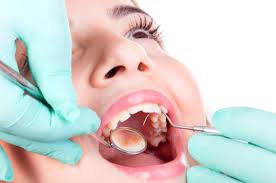
The one thing I like after attending our local dental hygienist is that lovely clean teeth feeling where all your pearly whites are buffed and polished. It’s good while it lasts!
The association between gum disease and other illness such as heart disease and some form of cancer is not new. Poor oral hygiene and gingivitis has also been previously linked to Alzheimer’s disease.
With gingivitis comes inflammation, pain, swelling and often bleeding on contact when you brush your teeth. There are many scientists who now believe that Alzheimer’s disease also has an inflammatory component in its causation.
What is news though, is that a new study from the UK has shown that components of those bacteria associated with gingivitis have been identified inside the brains of patients with Alzheimer’s disease who had recently died.
I was taught in medical school that the blood brain barrier was basically a fantastic barrier that made attack by outside invaders nigh on impossible. But maybe in Alzheimer’s disease there is something going on that allows these inflammatory bacteria to pass across.
In this small study brain tissue samples from 10 people with Alzheimer’s disease were compared to 10 people with no evidence of Alzheimer’s. Four of the ten samples from the Alzheimer’s group, showed evidence of the bacterium Porphyromonas gingivalis. Of those without Alzheimer’s disease none showed any evidence of the bacterium.
What does this mean?
Well it supports the idea that Alzheimer’s disease does involve an inflammatory process whereby the blood brain barrier is weakened and allows these bacteria access to the brain.
There may also be a link between highly specialised cells called microglia that patrol the brain looking for potential invaders and getting rid of them. The suggestion is that these microglia may become defective in some way.
To read a bit more about the amazing blood brain barrier, Dr Karl shares some great insights here on ABC Science
With 30% of all people having or have had some form of gum disease during their lives this has to be a good reason to ensure you clean and floss your teeth regularly and have your regular dental check-ups.
The message? Maintaining good dental hygiene across your lifespan not only means a nicer smile and sweeter smelling breath, it may also reduce your risk of periodontal bacterial assault on your brain and future neurodegenerative disease.
Did you brush your teeth this morning?
Ref:
Poole S, Singhrao SK, Kesavalu L, Curtis MA, Crean SJ. Determining the Presence of Periodontopathic Virulence Factors in Short-Term Postmortem Alzheimer’s Disease Brain Tissue. J Alzheimers Dis. 2013 May 10. [Epub ahead of print]

